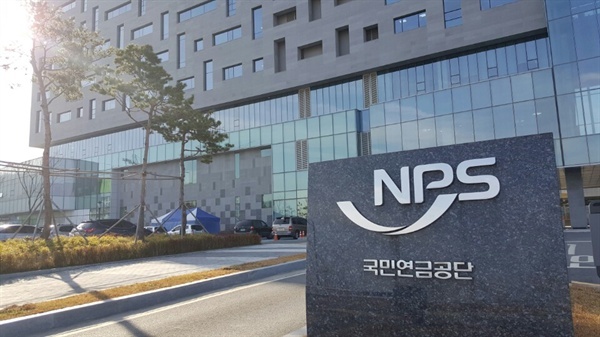Socially responsible investments grow rapidly in S. Korea
Firms with higher ESG ratings expected to increase profits amid NPS’ adoption of code
By Jie Ye-eunPublished : Dec. 15, 2019 - 19:37
South Korea is catching on to the global trend of socially conscious investments.
There are currently seven listed funds in the country categorized as ESG funds, standing for environmental, social, and governance. Among them, five were launched this year by local asset management companies, including Korea Investment Management, KTB Asset Management, Koreit Asset Management, KB Asset Management and Kiwoom Asset Management.
Last month, Samsung Asset Management also launched KODEX 200ESG -- an ETF based on the Kospi 200 ESG index.
There are currently seven listed funds in the country categorized as ESG funds, standing for environmental, social, and governance. Among them, five were launched this year by local asset management companies, including Korea Investment Management, KTB Asset Management, Koreit Asset Management, KB Asset Management and Kiwoom Asset Management.
Last month, Samsung Asset Management also launched KODEX 200ESG -- an ETF based on the Kospi 200 ESG index.

ESG refers to investments made by measuring the company’s environmental, social and governance levels, and the impact their investments would bring to those fields.
The funds are a type of socially responsible investing, or SRI, which broadly involves investors choosing or shunning companies in accordance with specific ethical values, with the evaluation based on ESG factors.
Increasing investor interest in making socially conscious investments has also triggered heavier funding in SRIs and launches of various products. Institutional investors’ adoption of the stewardship code and expansion of shareholder activism have also stirred up even more interest.
Investors added over 45 billion won ($38 million) to local SRI funds during the first half of this year, up 11.5 percent from a year earlier, according to industry sources.
As of Friday, Korean investors have poured 355.4 billion won into SRI funds and the net assets tallied 382.1 billion won, FnGuide data showed.
According to the financial market tracker, local SRI funds’ average return rate is favorable. Thirty SRI funds in Korea posted an average return of 3.94 percent on-year, with the corresponding figure for 575 local active stock funds coming to 1.27 percent.
By fund, KB Shareholder Value Focus Fund has generated the highest return rate of 14.1 percent, followed by Mirae Asset Tiger MSCI Korea ESG Universal ETF, with 12.09 percent and KODEX MSCI Korea ESG Universal at 10.1 percent, respectively.
Industry experts predict the local SRI market’s rapid growth will be propelled by the National Pension Service’s adopting the stewardship code to vitalize the ESG investment environment.

The NPS has said it will apply ESG investment in passive funds from next year and expand investment to overseas stocks, along with local bonds from 2022.
The stewardship code is a set of guidelines on trustee responsibility that allows the fund operator to intervene in corporate management.
“There was a case where the NPS’ adoption of the stewardship code led to an increase in SRI funds’ net assets. It further renewed the regular funds to SRI funds,” said Kim Jae-eun, an analyst at NH Investment & Securities.
As SRI fund investment garners attention, firms with higher ESG ratings are likely to see their profits increase as well, according to the watchers. They are assumed to be more competitive in resource management, governance structure management and dividend policy.
“Mature civic awareness and activeness in SNS has made consumers evaluate local firms’ social responsibilities. It has made those firms consider their ESG ratings as one of the most important factors to consider as part of corporate performance,” Kim added.
By Jie ye-eun (yeeun@heraldcorp.com)


















![[KH Explains] Hyundai's full hybrid edge to pay off amid slow transition to pure EVs](http://res.heraldm.com/phpwas/restmb_idxmake.php?idx=652&simg=/content/image/2024/04/18/20240418050645_0.jpg&u=20240419100350)

